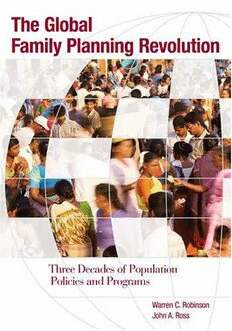
The Global Family Planning Revolution: Three Decades of Population Policies and Programs (Moving Out of Poverty) PDF
496 Pages·2007·2.008 MB·English
Most books are stored in the elastic cloud where traffic is expensive. For this reason, we have a limit on daily download.
Preview The Global Family Planning Revolution: Three Decades of Population Policies and Programs (Moving Out of Poverty)
Description:
The striking upsurge in population growth rates in developing countries at the close of World War II gained force during the next decade. From the 1950s to the 1970s, scholars and advocacy groups publicized the trend and drew troubling conclusions about its economic and ecological implications. Private educational and philanthropic organizations, government, and international organizations joined in the struggle to reduce fertility. Three decades later this movement has seen changes beyond anyone's most optimistic dreams, and global demographic stabilization is expected in this century. The Global Family Planning Revolution preserves the remarkable record of this success. Its editors and authors offer more than a historical record. They disccuss important lessons for current and future initiatives of the international community. Some programs succeeded while others initially failed, and the analyses provide valuable guidance for emerging health-related policy objectives and responses to global challenges.
See more
The list of books you might like
Most books are stored in the elastic cloud where traffic is expensive. For this reason, we have a limit on daily download.
